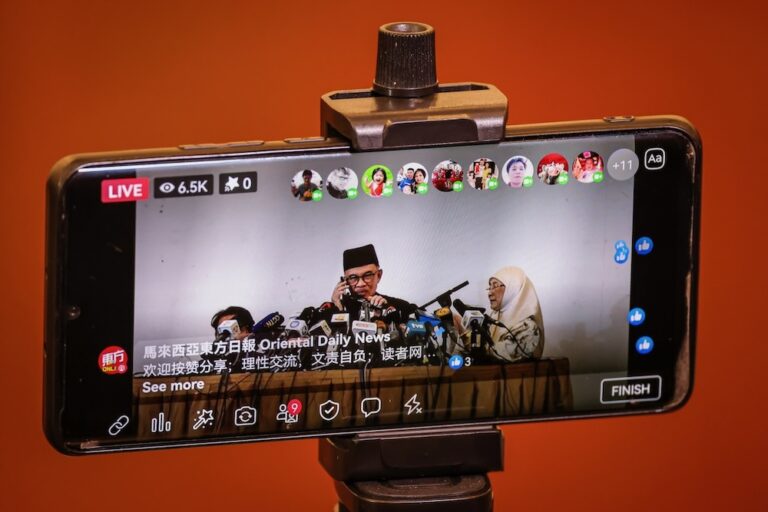On World Press Freedom Day 2012, the Centre for Independent Journalism renews its call to the people to reclaim their right to a media that can play its role of bearing witness and informing society.
(CIJ/IFEX) – 3 May 2012 – There has always been little cause for Malaysian media workers to celebrate World Press Freedom Day in light of the legal restrictions and political control, but this year it actually grew worse.
Just five days ago, our journalists were attacked, most of them allegedly by police personnel, while covering the Bersih rally. At least 12 cases were reported where journalists were harassed, threatened, assaulted, arrested, and had their equipment damaged or seized and some not returned. While the violence committed to these journalists was shocking, the violation to media freedom was compounded further when some media did not report the attacks, while others did worse through misleading reports about the rally.
At a time when accurate and balanced reports were sorely needed to give a truthful picture of what happened on the streets surrounding Dataran Merdeka on 28 April 2012, Astro censored a segment of BBC’s coverage that gave voice to the protesters; Harian Metro misreported an attack on a journalist as being blamed on the protesters although the police were the alleged culprits; Utusan Malaysia gave a similarly misleading impression of that incident; and New Straits Times replaced a key word in a visiting Australian senator’s speech delivered in 2009 and ended up falsely depicting him as anti-Islam.
Such unethical coverage of Bersih showed critical failures in not only the function but also the structure of media, which are not addressed by the recent minor amendments to our printing presses law.
The unchanged reality is this: The ruling Barisan Nasional government still has effective control over the Malaysian print media, through show-cause letters, calls dispensing “advice”, and summonses to the Home Ministry. Such political interference creates a hostile environment for press freedom, making it difficult for conscientious journalists to practise ethics in their daily work, ultimately resulting in self-censorship on their part, or deliberately unethical reporting on the part of others, as these recent examples have shown.
On World Press Freedom Day 2012, the Centre for Independent Journalism renews its call to the people to reclaim their right to a media that can play its role of bearing witness and informing society. This call goes out especially to the thousands of people at the rally who saw and could document personal accounts of what some mass media did not or could not or wrongly report. If they want a free and fair election, they should know how crucial it is to have a free and fair media.


